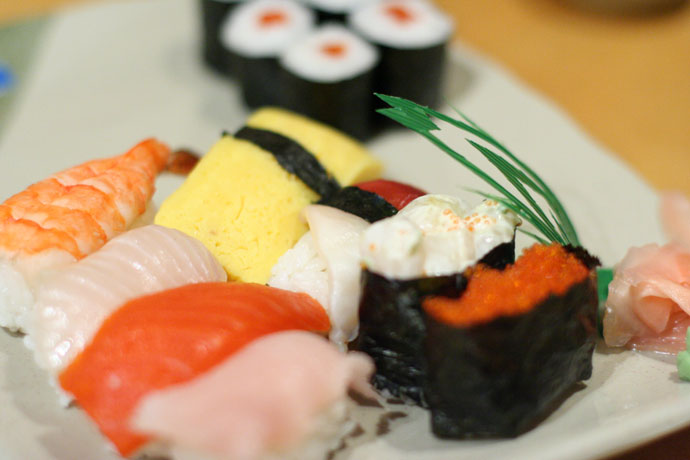Three weeks after the Maple Leaf financial dude told the markets the plant would reopen, the Maple Leaf listeria plant is about to reopen and produce deli-meats.
The company has videos, a long list of food safety enhancements they are adopting, and has created the position of ‘chief food safety officer.’
Guess I thought a $5 billion a year company would already have one of those. But that’s one of the things I find most challenging – how to compel everyone from maintenance crews to CEOs that food safety matters, especially in the absence of an outbreak. Now there’s an outbreak, 24 suspected or confirmed dead, 56 ill.
"Throughout this incident we have steadfastly placed consumers’ interests first" said Michael McCain, president and CEO of Maple Leaf Foods.
That remains to be seen as more is uncovered about why there were delays and lousy notification as news of the outbreak initially trickled out. But yes, once the problem became publicly apparent, the company acted in great fashion.
The Canadian Medical Association Journal yesterday called for a full public inquiry. Not necessary, and a waste of taxpayers money. A few Bill Marler lawsuits would reveal far more about who knew what when.
Or people could do their jobs:
• Maple Leaf in conjunction with the various public authorities should provide a full public accounting of who knew what when and what was done to find out more;
• some sort of warning system about the risk of listeriosis in foods must be developed for at-risk populations – especially pregnant women and the elderly because they are the ones who get sick and die; and,
• make all data of listeria testing in plants public so others in the industry can improve and consumer confidence can be enhanced with data not just words.

 "We want to reassure the public that there’s no contamination in the domestic supply of infant formula," says Janice Oliver, deputy of operations for FDA’s Center for Food Safety and Applied Nutrition.
"We want to reassure the public that there’s no contamination in the domestic supply of infant formula," says Janice Oliver, deputy of operations for FDA’s Center for Food Safety and Applied Nutrition. She didn’t lose the baby. It’s not like she misplaced the baby somewhere. The baby died because of listeria.
She didn’t lose the baby. It’s not like she misplaced the baby somewhere. The baby died because of listeria.  “After careful study of the records, the physical plant and product test results received from the Canadian Food Inspection Agency (CFIA), internal and external experts have concluded that the most likely source was a possible collection point for bacteria located deep inside the mechanical operations of two slicing machines on lines 8 and 9. Rigorous sanitization of this equipment was completed on a daily basis in accordance with or exceeding the equipment manufacturer’s recommendations. However, upon full disassembly, areas were found where bacteria may accumulate deep inside the slicing machines and avoid the sanitization process. There were also other environmental factors, not on product contact surfaces, that may have contributed to the contamination.
“After careful study of the records, the physical plant and product test results received from the Canadian Food Inspection Agency (CFIA), internal and external experts have concluded that the most likely source was a possible collection point for bacteria located deep inside the mechanical operations of two slicing machines on lines 8 and 9. Rigorous sanitization of this equipment was completed on a daily basis in accordance with or exceeding the equipment manufacturer’s recommendations. However, upon full disassembly, areas were found where bacteria may accumulate deep inside the slicing machines and avoid the sanitization process. There were also other environmental factors, not on product contact surfaces, that may have contributed to the contamination..jpg) “About six weeks.”
“About six weeks.”.jpg) My ex mother-in-law once told me that if I had a baby I would have to get rid of my cats. I replied, “No cats, no baby.” My step-brother’s cats mysteriously disappeared once his firstborn was old enough to crawl. Doug and I have two cats and two dogs and no intention of giving them up or sending them outdoors once the baby arrives. Sure, there’s dog hair all over the floors and it’s going to be a hassle learning to manage new and old responsibilities – and much more difficult to keep pet hair out of the baby’s mouth once she’s mobile. But we committed to the pets long ago and have been working on teaching them their order in the home.
My ex mother-in-law once told me that if I had a baby I would have to get rid of my cats. I replied, “No cats, no baby.” My step-brother’s cats mysteriously disappeared once his firstborn was old enough to crawl. Doug and I have two cats and two dogs and no intention of giving them up or sending them outdoors once the baby arrives. Sure, there’s dog hair all over the floors and it’s going to be a hassle learning to manage new and old responsibilities – and much more difficult to keep pet hair out of the baby’s mouth once she’s mobile. But we committed to the pets long ago and have been working on teaching them their order in the home. 
.jpg) Reg was bought as a present for her son’s ninth birthday and the family carried out research on keeping reptiles beforehand as Ms Vry was heavily pregnant at the time.
Reg was bought as a present for her son’s ninth birthday and the family carried out research on keeping reptiles beforehand as Ms Vry was heavily pregnant at the time.